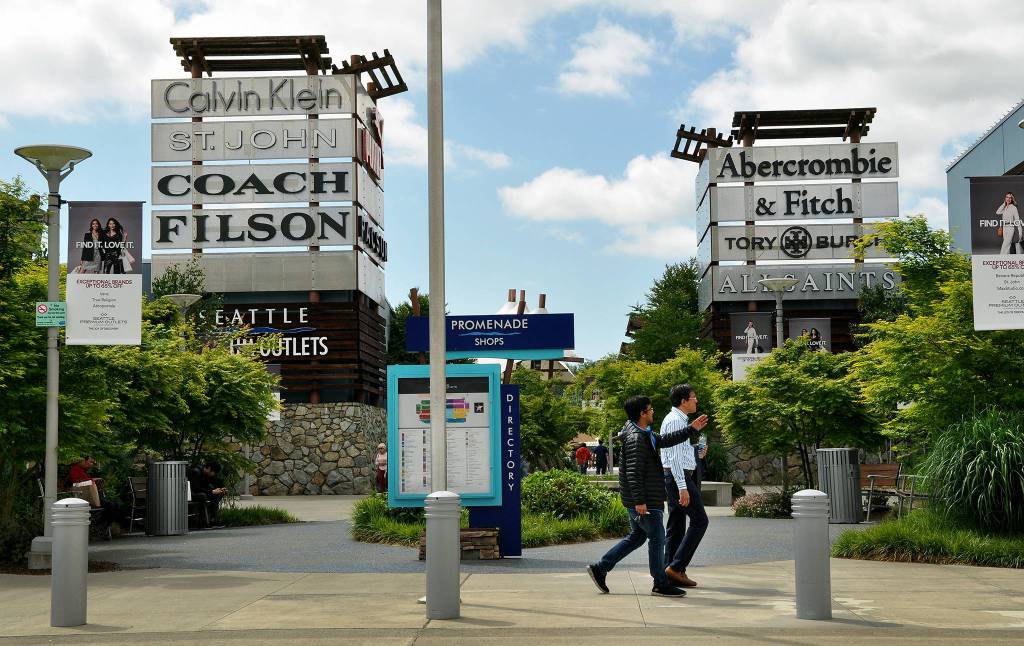Tax lawsuit reveals Tulalips have $300 million in cash, bonds
Published 1:30 am Sunday, May 27, 2018




SEATTLE — An expert witness offered a rare glimpse into the Tulalip Tribes’ financial success when he took the stand during a federal trial over the right to tax Quil Ceda Village stores.
Gaming has been the big money-maker, helping the tribes amass nearly $1 billion in assets, accountant Todd Menenberg testified midway through the trial, just over a week ago. Almost a third of those resources were cash or bonds. Recent balance sheets showed evidence of “very good, prudent stewardship by the tribes.”
“This is an amazingly rich organization,” Menenberg said. “It has very large assets and very minimal debt.”
The Tulalip reservation of today makes for a huge contrast with what it was in the early 1970s, when the unemployment rate hit 72 percent. Now, tens of thousands of non-tribal members go there every day to work, shop and gamble on what was formerly vacant land along the west side of I-5.
The thriving shopping destination known as Quil Ceda Village is the focus of a two-week bench trial that wrapped up last Wednesday. The tribes want the court to recognize their exclusive right, as a sovereign government, to tax hundreds of millions of dollars in yearly sales at the shopping magnet they built. They aren’t disputing their success.
The tribes argue that they created Quil Ceda Village largely on their own, with the U.S. government providing the only significant help. They sued in 2015 to stop the state of Washington and Snohomish County from collecting tax on sales to non-Indians at non-tribal stores.
At stake is a huge prize. In 2016, the state collected nearly $27 million in sales tax on more than $400 million in sales at Quil Ceda Village. Snohomish County and Community Transit took in another $9 million in taxes. If the tribes prevail, the county’s loss would be the equivalent to roughly 40 deputy sheriff jobs, an attorney for the county told the court.
The state and county defense strategy drew attention to the large sums of money in play. Their courtroom opponents, meanwhile, suggested that the tribes’ financial resources aren’t in dispute — that this is a case about sovereignty and self-determination.
The U.S. Department of Justice intervened to support the tribes’ case.
The legal action also targets personal property taxes at Quil Ceda Village as well as the state’s Business & Occupation tax.
The federal government in 2001 recognized the village as a political subdivision of Tulalip tribal government. Major tenants on its 2,100 acres include Seattle Premium Outlets, Cabela’s and Walmart. Much of the area remains undeveloped.
While there are no homes in the village — only stores and the Tulalip Resort Casino — the tribes view it as a city that requires a full array of services, including public safety, public works and a building department. The tribes’ witnesses spoke to those costs. Their attorneys called on professor Joseph Kalt, who leads The Harvard Project on American Indian Economic Development.
The state and the county regard Quil Ceda Village as more of a shopping mall than a political entity. Their witnesses highlighted numerous ways in which the state and county support it. A big one is the state’s responsibility for building, maintaining and policing I-5, the main conduit for customers.
Accountant Menenberg was hired to bolster the state’s defense. The Seattle-based consultant with the firm Navigant reached his conclusions after reviewing financial statements from 2015 and earlier. That information isn’t generally available to the public.
“There is no evidence that Tulalip is under economic hardship,” he said during questioning from Assistant Attorney General David Hankins.
The tribes’ attorneys sought to keep gaming revenue and dividend payments confidential. Revealing that information, they said, would threaten the tribes’ economic well-being. U.S. District Judge Barbara Jacobs Rothstein denied the request.
In arguing to make the information public, the attorney general’s office called tribal gaming the “elephant in the room.”
“Gaming is the most profitable of Tulalip’s various business operations, and a significant reason for the existence of Quil Ceda Village (QCV),” Hankins wrote. “Indeed, it is not feasible to talk about (the village), the competing governmental interests, or the needs of Tulalip without discussing the most significant revenues and profits they earn.”
The tribes opened their first casino in 1992 as an addition to a bingo hall.
For 2015, Tulalip gaming activities netted $190 million, Menenberg said. That’s several times what the tribes earn through leases, taxes and other revenue at retail areas.
By the end of 2015, the tribes had $300 million in cash and bonds, Menenberg testified. They had only $40 million in long-term debt.
They spent $137 million on government services that year.
Though the government activities differ, that’s similar to the current operating budget for the city of Everett, home to about 110,000 people.
The tribes had enough money to take the lead role in the construction of a new overpass at 116th Street NE, among other road projects. In December, they broke ground on a new $140 million casino and 150-room hotel west of I-5 at the Marysville-Tulalip exit. It will replace the smaller of the tribes’ two casinos, Quil Ceda Creek.
“There has been no inability to expand as they’ve needed to or as they’ve desired,” Menenberg said.
The tribes provide cash dividends to enrolled members, a total of $72 million in 2015. That works out to an average of more than $16,000 per person, Menenberg’s report stated.
The tribes claim about 4,800 members.
Tribal government has become a philanthropic powerhouse, making regular donations to a wide range of non-tribal charities that benefit health, the arts, education and more.
Menenberg concluded that Tulalip’s three major entities — tribal government, Quil Ceda Village and the Tulalip Gaming Organization— are interconnected.
“It’s all the same pot of money,” he said.
They produce different financial statements, but they share revenue. About $17 million in taxes from gas stations and liquor stores outside Quil Ceda Village boundaries get booked as village revenue. At the same time, Quil Ceda Village didn’t collect a $2 million yearly lease from Tulalip Resort Casino, its main economic engine, Menenberg said.
“It creates an impression that the casino is $2 million richer and Quil Ceda Village is $2 million poorer,” he said.
There’s nothing wrong, to his knowledge, with doing the bookkeeping that way, he said.
Menenberg said he was impressed by a balance sheet that he called “by far the most conservative I’ve ever seen.”
On cross-examination, an attorney for the tribes pushed back. Phillip Katzen of Seattle-based Kanji & Katzen asked Menenberg if he had any thoughts about why Tulalip might take such an approach.
Could generations of oppression have had anything to do with it? What about the severe poverty on the reservation for much of its history? Or the volatility of the casino business, including a fear that the federal government, on a whim, could upend the tribal gaming industry?
Those might be incentives to diversify revenue streams, including the use of sales tax, Katzen reasoned.
Closing briefs are due in early June. There’s no timetable for the judge to reach a decision.
Noah Haglund: 425-339-3465; nhaglund@heraldnet.com. Twitter: @NWhaglund.








